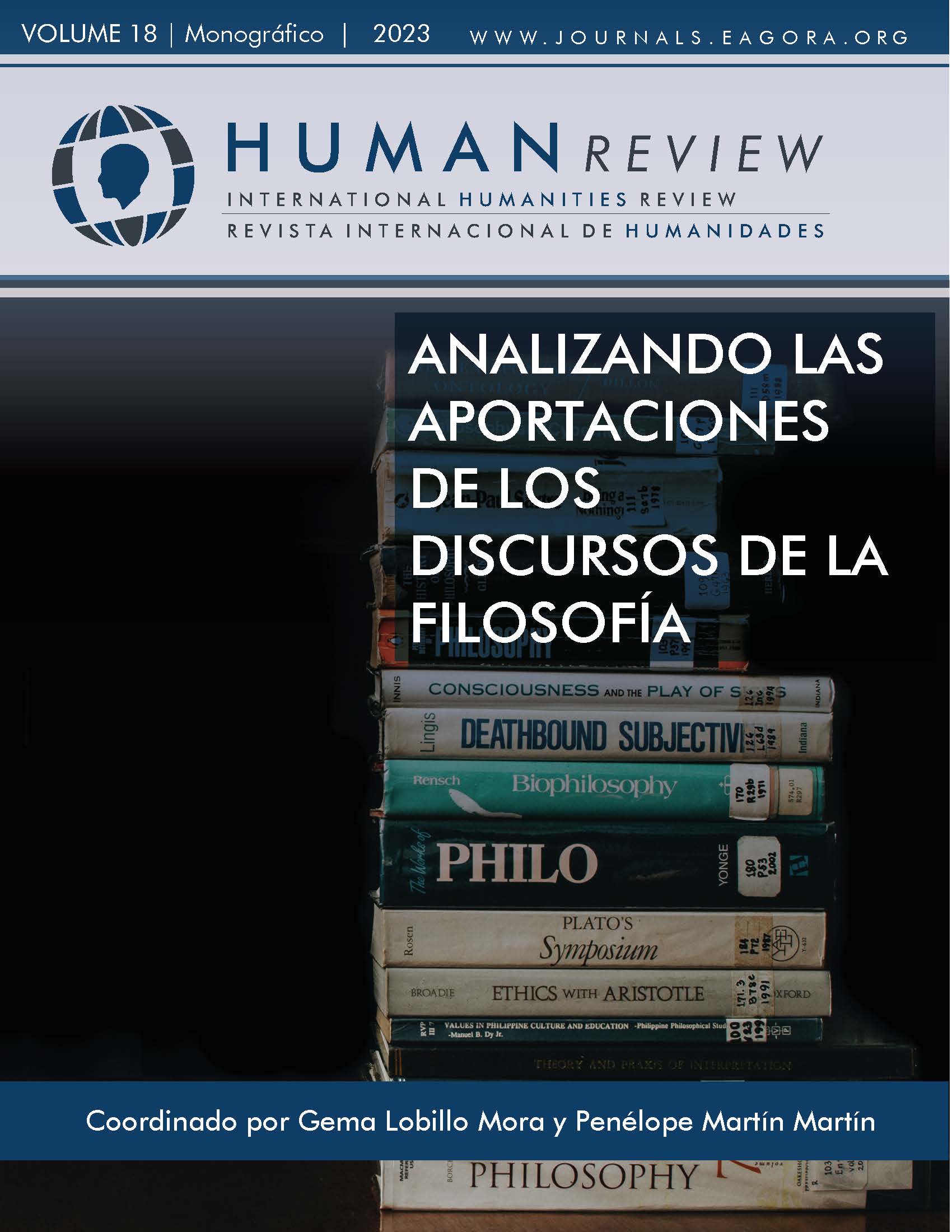General Semantics: A Science for Common Life
DOI:
https://doi.org/10.37467/revhuman.v18.4903Keywords:
Aristotle, General Semantics, Korzybski, Science, LanguageAbstract
The language, concepts, and scientific theories from which the world and society have been built have been developed from the influence of intellectuals who dedicated their lives to building science from scratch like the ancient Greeks and more in specifically Aristotle. However, science is not attached to everyday situations, daily life, hence the theory of General Semantics by Alfred Korzybski that proposes a new non-Aristotelian theory more in line with people, with everyday life.
References
Anton, C., Logan, R. K., & Strate, L. (2017). Taking up McLuhan’s cause: Perspectives on media and formal causality. Intellect.
Anton, C., & Strate, L. (2012). Korzybski and--. Institute of General Semantics.
Barnes, J. (2000). Aristotle: A very short introduction. Oxford University Press.
Korzybski, A. (2005). Science and Sanity: An Introduction to non-Aristotelian Systems and General Semantics. Institute of General Semantics.
Levinson, M. H. (2021). Cuentos de hadas prácticos para la vida diaria. (Trujillo-Liñá n, Trans.). Instituto de Semá ntica general.
Lorenz, H. (22 de abril de 2009). Ancient theories of soul. Stanford Encyclopedia of Philosophy. https://plato.stanford.edu/entries/ancient-soul/
Martí nez, T. (2014). Aristóteles. Acerca del Alma. Gredos.
Strate, L. (2011). On the Binding Biases of Time: And Other Essays on General Semantics and Media Ecology. New Non-Aristotelian Library Institute of General Semantics.
Korzybski, A. (2001). Manhood of humanity: An Introduction to Non-Aristotelian Systems and General Semantics. Institute of General Semantics.
Trujillo-Liñán, L. T. (2016). An Aristotelic Approach to the Time-Binding Notion in Alfred Korzybski. ETC: A Review of General Semantics, 73(2), 185–189. www.jstor.org/stable/44857500
Downloads
Published
How to Cite
Issue
Section
License
Those authors who publish in this journal accept the following terms:
- Authors will keep the moral right of the work and they will transfer the commercial rights.
- After 1 year from publication, the work shall thereafter be open access online on our website, but will retain copyright.
- In the event that the authors wish to assign an Creative Commons (CC) license, they may request it by writing to publishing@eagora.org









